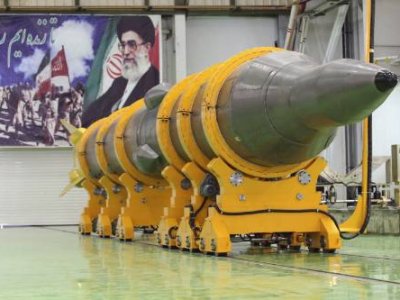Never make deals with the devil – Iran atomic talks move toward extension
 VIENNA (AP) — Prospects of a nuclear deal with Iran by a deadline slipped further away Sunday despite frenzied last-minute diplomacy, forcing the U.S. and partner nations to start working on ways to extend the talks, diplomats said.
VIENNA (AP) — Prospects of a nuclear deal with Iran by a deadline slipped further away Sunday despite frenzied last-minute diplomacy, forcing the U.S. and partner nations to start working on ways to extend the talks, diplomats said.
Two Western diplomats said talks were continuing with Iran on trying to bridge differences on reducing Tehran’s ability to make nuclear weapons to levels acceptable to Washington while giving the Islamic republic the relief it seeks from international sanctions over its atomic activities.
At the same time, they said negotiators from the U.S., Russia, China, Britain, France and Germany had begun looking at possible scenarios for extensions past the deadline at midnight Monday that they can present to Iran.
The development reinforced growing expectations since the start of the current round Tuesday that the U.S.-Iran dispute would prove unsurmountable by the target date.
U.S. Secretary of State John Kerry was meeting Sunday evening with Iranian Foreign Minister Mohammad Javad Zarif. One of the diplomats said Kerry and Zarif could start floating the need to focus on going past the Monday deadline discussions at that point.
The two diplomats demanded anonymity because they weren’t authorized to discuss the confidential negotiations. A U.S. official acknowledged that the prospect of add-on talks past Monday was now being considered.
“It is only natural that less than 48 hours from the deadline we are discussing a range of options,” the official said on condition of anonymity for the same reason. “An extension is one of those options. It should come as no surprise that we will also engage in a discussion of the options with the Iranians at some point as well.”
Foreshadowing developments, German Foreign Minister Frank-Walter Steinmeier told German television: “If there isn’t quite a conclusion, we will have to search for possibilities to ensure that nothing breaks off here and the process can be continued.”
But reaching an agreement that allows for more negotiations could be difficult. Beyond assurances that the Iranians aren’t just talking for the sake of winning time, the U.S. administration wants to show to congressional skeptics that there is sense to continuing the talks. That means Washington might push the Iranians to accept at least one of their demands on the table.
Should such a plan be agreed upon, talks could resume in early December when Kerry plans to return to Europe for a previously scheduled NATO foreign ministers meeting in Brussels, and an international conference in London.
Outlining some differences between Washington and Tehran in general terms, President Barack Obama said the U.S. goal is “to shut off a whole bunch of different avenues whereby Iran might get a nuclear weapon, and at the same time make sure that the structure of sanctions are rolled back step for step as Iran is doing what it’s supposed to do.”
“I think Iran would love to see the sanctions end immediately, and then to still have some avenues that might not be completely closed, and we can’t do that,” he told ABC’s “This Week” in comments aired Sunday
As the clock ticked down, other foreign ministers from the six negotiating powers were converging on Vienna in a concerted effort to at least get an acceptable way to extend the talks even if the deal deadline is missed.
Steinmeier, Russian Foreign Minister Sergey Lavrov, and Laurent Fabius, their French counterpart, were already in Vienna by late Sunday. British Foreign Secretary Philip Hammond was en route, and Wang Yi, China’s foreign minister, was scheduled to arrive Monday.
Kerry, who arrived Thursday, also met with Saudi Foreign Minister Saud al-Faisal, whose country is vying for Middle East influence with Iran. Diplomats said Saud flew to Vienna from Paris solely for the briefing, and the two talked in his plane parked on the Vienna Airport tarmac.
http://cnsnews.com/news/article/diplomats-iran-atomic-talks-move-toward-extension
